Kornel Mundruczo's Delta
Mihail's father has died. Wanting to reconnect with his roots, he decides to visit his family in the delta regions of Romania. Imposing on their poor community, he is forced to live in his father's old hut. His mother, who has found another partner, asks Mihail how long he wishes to stay. It's obvious he is not welcome. The townsfolk are outraged. They detest outsiders. However, not all is lost. Mihail meets his sister Fauna. They begin to develop a friendship that challenges the repressed social conventions of the isolated village.
Mihail decides to build a house. The stepfather is furious. The siblings start spending a lot of time together while they build wooden planks across the river and lay the foundation for their new home. The townsfolk look at them with suspicion. They don't like their traditional values being destroyed by a stranger. Time passes and the couple are left alone to build their house and to develop their newfound relationship.
It's a tradition in Romania to invite the local townsfolk to your new home when it is finished. Wanting to discover a community beyond their isolation Mihail and Fauna invite them to eat bread, drink vodka and dance to music. However, something is wrong. The family refuse to go to the housewarming party and the villagers look around with anger and distaste. They begin to ask questions; what do brother and sister do when they are alone?
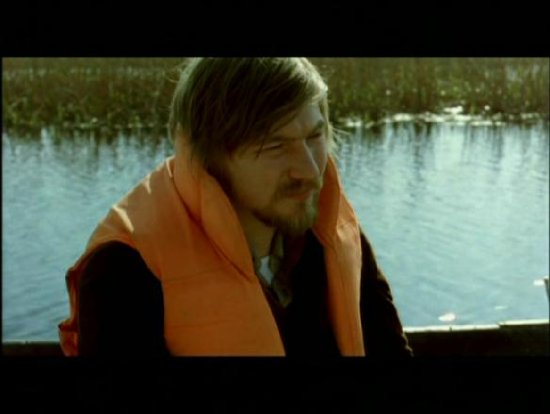
The meditative opening sequence to Delta affirms the ponderous tone to this mysterious movie. A ship sails across the hypnotic sea towards the sunset. The sound of a horn pierces the soundtrack. The ship arrives at its port. The faceless passengers have also arrived at their destination. Mihail walks through the poverty-stricken streets of a dilapidated village with decaying bricks, ear-splitting sounds of squealing pigs and disgruntled old men that stare into the distance with blank expressions. There is no room for Mihail at the village now that his mother has found another husband. He has to sleep on a bed of straw in his father's old hut deep inside the delta with a torch, a beaker and a jug of brandy to keep him company. As Mihail leaves the village on a small boat with his sister Fauna, he is exposed to the natural world. The landscape opens up into magnificent widescreen splendour. However, the delta is also filled with a deep sense of isolation and loneliness, even though it is picturesque, nature is a detached and cruel beast. The cinematography of the natural world is filled with dull grey pastel greens and washed out colours that are restricted to the fog induced landscape.
Delta develops an interesting relationship between the social norms of society and the free unburdened world of nature. There is a magnificent scene wrapped in the comfort of the environment when Mihail's sister Fauna comes to visit him. They sit around a fire together in the openness of night while she watches her brother eat with intense curiosity. The camera zooms in on them, reinforcing their increasing intimacy. In the next scene, they both lye in separate beds, the two shots juxtaposed to give us the impression they are thinking about one other. It's an indication that the original sin of incest is about to be broken. A taboo that challenges the social conventions of 'civilised' culture against the inclinations of nature. The skilful scene that conveys this sexual undercurrent occurs after they have spent the day building a walkway across the river. Fauna has decided to stay overnight with her brother in the hut. In the hours of darkness, he walks into her bedroom with a torch. The yellow light focuses on her naked body. Mihail asks his sister, 'Do you want me to make a fire?' Staring at him with intense alluring eyes she replies, 'No. It's colder when it dies out.' Mihail looks at her and says, 'That's not true'. They exchange a long awkward glance as the light moves towards the ground.
Kornel Mundruczo, the director, ponders on the lingering predicament between brother and sister and doesn't ignore the escalating conflict it creates with the villagers. It's always in the back of our minds as each scene unfolds. Mundruczo gives the audience room to roam around the landscape without resorting to fancy editing techniques. Everything is stripped down to its essentials. The slow lingering visuals and meditative mood are what makes audiences open their heart to this movie. Even if some viewers might find the meditation on nature and the subject matter of incest not to their tastes, Mundruczo respects his audience. He doesn't mock our attention spans. When the villagers come to 'collect' Fauna for a funeral they move down river on boats. There is a foreboding sense of beauty, sadness and loss in this scene, evoking the mood of Werner Herzog's Fitzcarraldo (1982). The landscape is its own lonely beast. Monks chant with a delicate mournful murmur as the slow violin music throbs like a vanishing heartbeat. The forlorn faces of the villagers look into the distance as their oars move through the muggy waters. The dogma of death dances within the frame like they are travelling into the intestines of the nether world.
If you've been brought up with American films, it takes some adjustment to watch a European movie. Without making a generalised statement, they have a different sensibility towards visuals and character psychology. At most, there are probably only a few pages of dialogue throughout the entire film. Delta is a deliberation on the dynamic between social norms and nature. Falling in love in a world of small town ignorance. In the final scene, the villagers are reactionary animals, forcing Fauna to drink vodka out of a watermelon. It's a harrowing sequence.
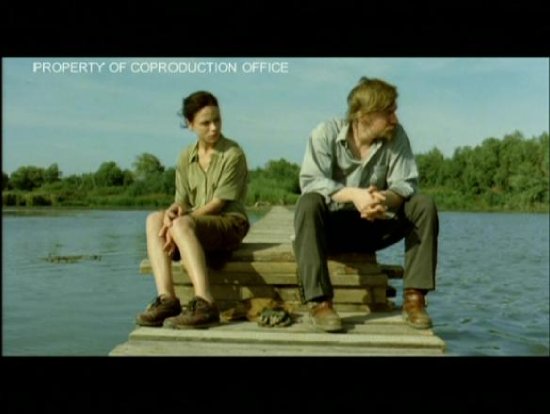
Trivia: The lead actor Lajos Bertok died during production in 2006 so the director cast the composer Felix Lajko to play the protagonist. Lajko is a well-known musician in Hungary (he did the violin music for the film). This is his first acting performance. However, when Lajko was on board in 2007, the director changed the original script. It was initially a movie about revenge but turned into a story about intolerance.
Special Features: None
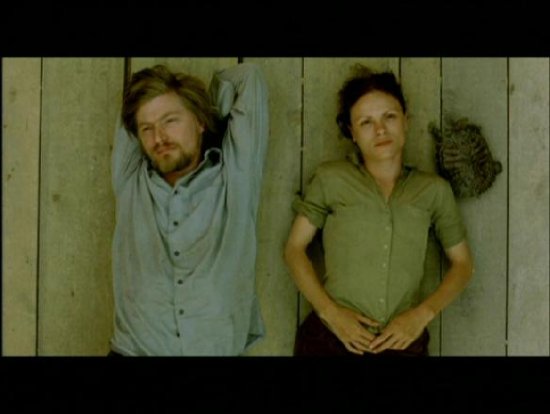
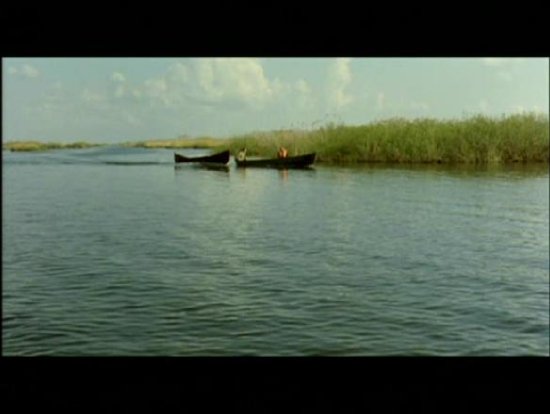
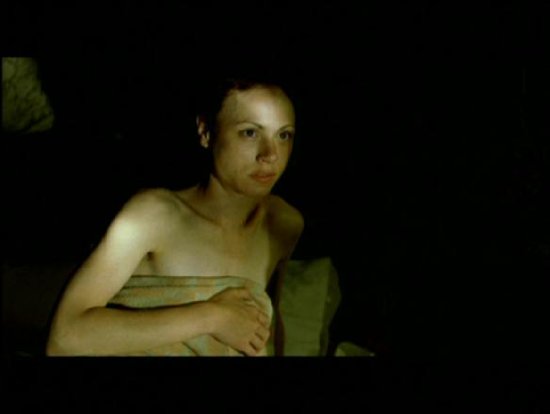
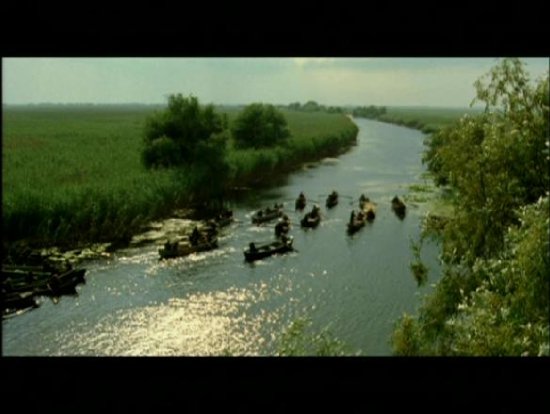
Your Opinions and Comments
Be the first to post a comment!